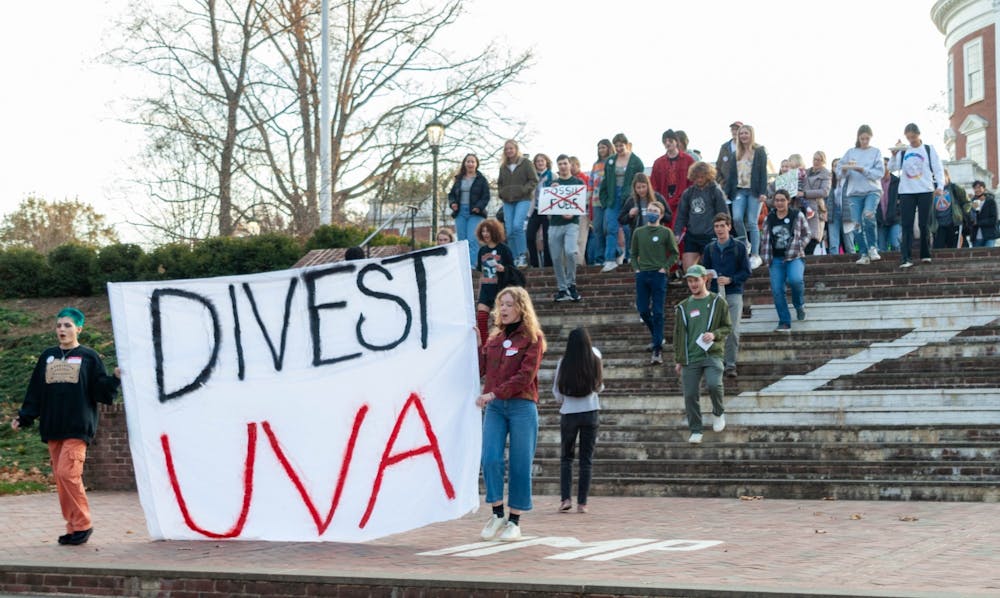Picture it — you’re in elementary school and it’s Earth Day. In celebration, your teacher has passed out markers and a coloring page full of blooming flowers, happy animals and clear skies. Then your class goes outside to talk about the environment and its many wonders. Yet the moment you step outside you realize the stark differences between your idealistic coloring page and the real world. You see blooming flowers replaced with barren soil, flocks of birds retreating from the blistering heat and a sky full of smog. This isn’t what Earth Day is supposed to be like.
Whether it be that the ice caps are melting, the global sea level is rising or the earth is burning, we all know the climate is changing. Nations across the globe came together in 2015 to adopt the Paris Agreement — a legally binding treaty on climate change with the goal of limiting global warming to 1.5 degrees Celsius. Only weeks ago, the International Panel on Climate Change released its sixth assessment report, which stated that this goal could not be met. As it stands, scientific evidence shows that cumulative net anthropogenic greenhouse gas emissions have increased since 2010 across all major sectors, primarily in urban settings. This information is not new — we have studied these growing trends for decades. Yet, some continue to ignore this issue because they fail to recognize its future catastrophic effects. Others write off climate change as simply a hoax. Both forms of pushback are detrimental to any progress that has been made.
Not everyone has stayed silent on this issue — after a multitude of student protests and demands, many universities began taking action. Brown University has sold 90 percent of its investments in fossil fuel extraction and Stanford University has reduced over 90 percent of its active fossil fuel holdings, to name a few. Here on Grounds, the student group DivestUVA has written countless letters to University President Ryan and the Board of Visitors, urging them to divest the University’s $14.5 billion dollar endowment from the fossil fuel industry. These efforts demonstrate that not enough has been done to reverse the impending effects of climate change on Grounds — like these student groups, we must look at the bigger picture. While individuals can and should still engage in sustainable practices, at the end of the day, it is institutions that are capable of making the changes we desperately need.
The Climate Action Tracker has rated the U.S. insufficient in its climate change response. In Virginia, Governor Glenn Youngkin’s failed nomination of former coal lobbyist Andrew Wheeler to secretary of natural resources and December announcement that he intends to withdraw the state from the Regional Greenhouse Gas Initiative demonstrate that the state administration is apathetic to the climate crisis. Climate change has been — and continues to be — politicized and written off by policymakers. However, a dying planet should not be subject to political debate, nor met with indifference.
The University’s 2011 goal to reduce greenhouse gas emissions 25 percent below 2009 levels was accomplished six years early in 2019. While we praise the University’s accomplishments, the ease with which it reached this goal suggests that it should be holding itself to higher standards. The University must wholeheartedly dedicate itself to combating climate change.
More recently, the University’s 2020-2030 Sustainability Plan was approved by the Board of Visitors — setting goals to be carbon neutral by 2030 and fossil free by 2050 — while the University Investment Management Company’s 2020-2021 annual report celebrates mostly smaller-level community based efforts to combat climate change. Although beneficial, these actions are not enough. For one, the University must be much more transparent in the specific actions it is taking to achieve these goals. For instance, carbon neutrality can theoretically be achieved by buying carbon offsets — an unethical practice that offloads the responsibility of decreasing carbon emissions onto other corporations. In addition to more transparency on how it plans to achieve carbon neutrality, the University must fully disclose its fossil fuel investments and move up its timeline for divestment. UVIMCO, on the other hand, must recognize the reality that small scale efforts are not enough. Reversing climate change is driven by large scale institutional action and time is running out.
Our climate is changing. Our Earth is dying — children are going without water, forests are increasingly burning and species are declining. With Earth Day fast approaching, we must heed the warnings of climatologists and respond now. Each day we are exposed to a changing climate and choose to do nothing, is a day spent living in blissful ignorance — killing ourselves and life as we know it. This Saturday there is a national climate change march in D.C. called the “Rally for Climate, Care, Jobs and Justice.” And here on Grounds, there are a multitude of Earth Day events and clubs fighting against climate change. We encourage students to have their voices heard — attend Friday’s “How to Save a Planet Eco-Fair” and DivestUVA’s climate change march — do your part by demanding change from University administration and local legislators.







